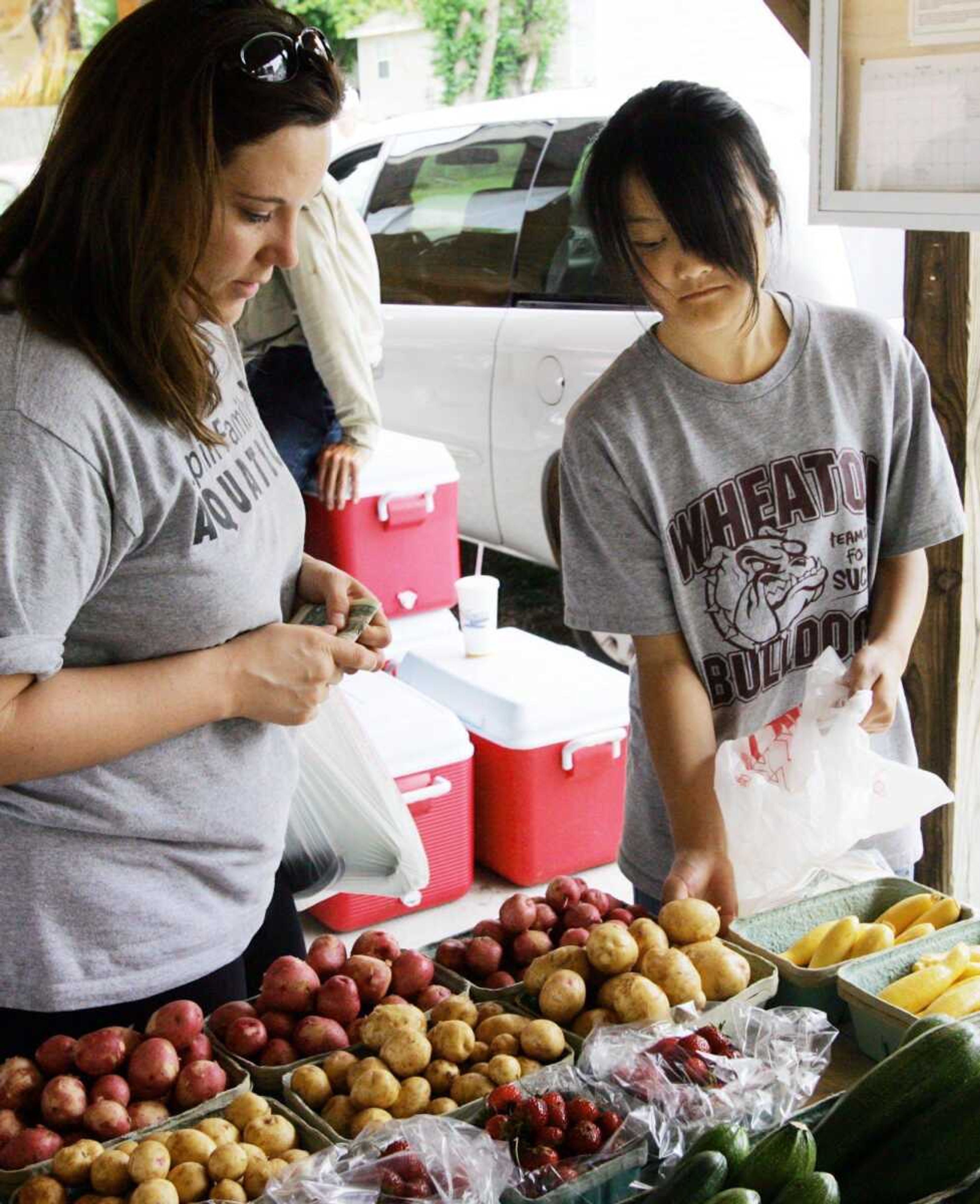WEBB CITY, Mo. -- Southwestern Missouri marketgoers are benefiting from advances in the education of local Asian farmers.
"It's a growing trend that started a few years ago with four Hmong [natives of Laos] growers," said Eileen Nichols, manager of the Webb City Farmers Market. "We'll have about three times that this year."
Eleven Asian vendors have signed up for this season, and eight were on hand on a recent Tuesday.
Helen Cha is in her third year of selling at the Webb City Farmers Market. She is part of the Lee family. The growers are originally from a mountainous region in Laos.
"We sell a lot of the American items like broccoli, zucchini and potatoes," Cha said." "We also sell a lot of lettuce and spinach. In the summer, it's tomatoes and green beans."
Cha said there has been a big transition in switching to North American produce.
"It is harder," she said. "It's hard to grow tomatoes. We don't know how to get them to a good size. They end up tiny. We don't usually put any fertilizer down."
Nichols said the market and the University of Missouri Extension office have been working with these farmers to help them grow better quality produce.
Two of the University Extension personnel, Patrick Byers, regional horticulture specialist, and John Hobbs, agriculture and rural development specialist, have been working with the Asian growers.
"This is the second year of funding to work with this group of farmers," Byers said. "The grant is focusing on techniques for growing: proper selection of varieties, insect and disease control, how to control weeds and how to fertilize.
"There are some Asian vegetables they offer, but they're learning how to grow Western vegetables they may not have grown before. They're good farmers. They just need to learn the new techniques for growing crops they're not familiar with."
These farmers are located throughout southwest Missouri, mostly in Jasper, Newton and McDonald counties.
"I've also been working with a few families in McDonald County," Hobbs said. "It's similar to here, and were getting things started."
While the domestic items sell best locally, Cha said she would prefer to see more local people try the Asian products and "see other nationalities come to market."
"We have a lot of Asian products, but we don't sell as many here," she said. "We grow a lot of the Asian vegetables like bok choy, which a lot of Americans are buying that now, and mustard green."
Bok choy is a leafy, green vegetable that might be considered similar to celery or cabbage. Another Asian vegetable that sells locally is a large, East Asian radish called daikon. Cha said the items cross over well and are typically used in stir-fry entrees.
"It is a niche, but we're focused on teaching them techniques to grow locally popular food," Nichols said. "They're experienced growers who came here from Minnesota and Wisconsin, originally from Laos. The soil [in the northern states] is rich and deep, and well-watered.
"Here, it's thick and rocky. We also have flooding and droughts that change farming, different crops and different bugs. The No. 1 issue is fertility. Usually they're not using fertilizer correctly."
Connect with the Southeast Missourian Newsroom:
For corrections to this story or other insights for the editor, click here. To submit a letter to the editor, click here. To learn about the Southeast Missourian’s AI Policy, click here.







